Facilities
Facilities includes:
The software facility in the department includes popular operating system platforms, programming language compilers, development tools, Simulation tools, DBMS packages, etc. Moreover, the department has a switched Fast Ethernet network connecting all nodes of the department through structured cabling with the main laboratory, servers and graphics workstations on Gigabit Ethernet.
The department has all the latest teaching aids and equipment including several multimedia projectors, B&W and color laser printers, and scanners.
The department has 100mbps Internet connections provided by BSNL
The Electrical & Electronics (EE) department library of Mar Baselios Christian College of Engineering and Technology (MBCCET), which serves here as an information center for students and staff needs, has a major role to play in paving the way for better academic excellence. It was established in the year 2010.
DEPARTMENT LIBRARY
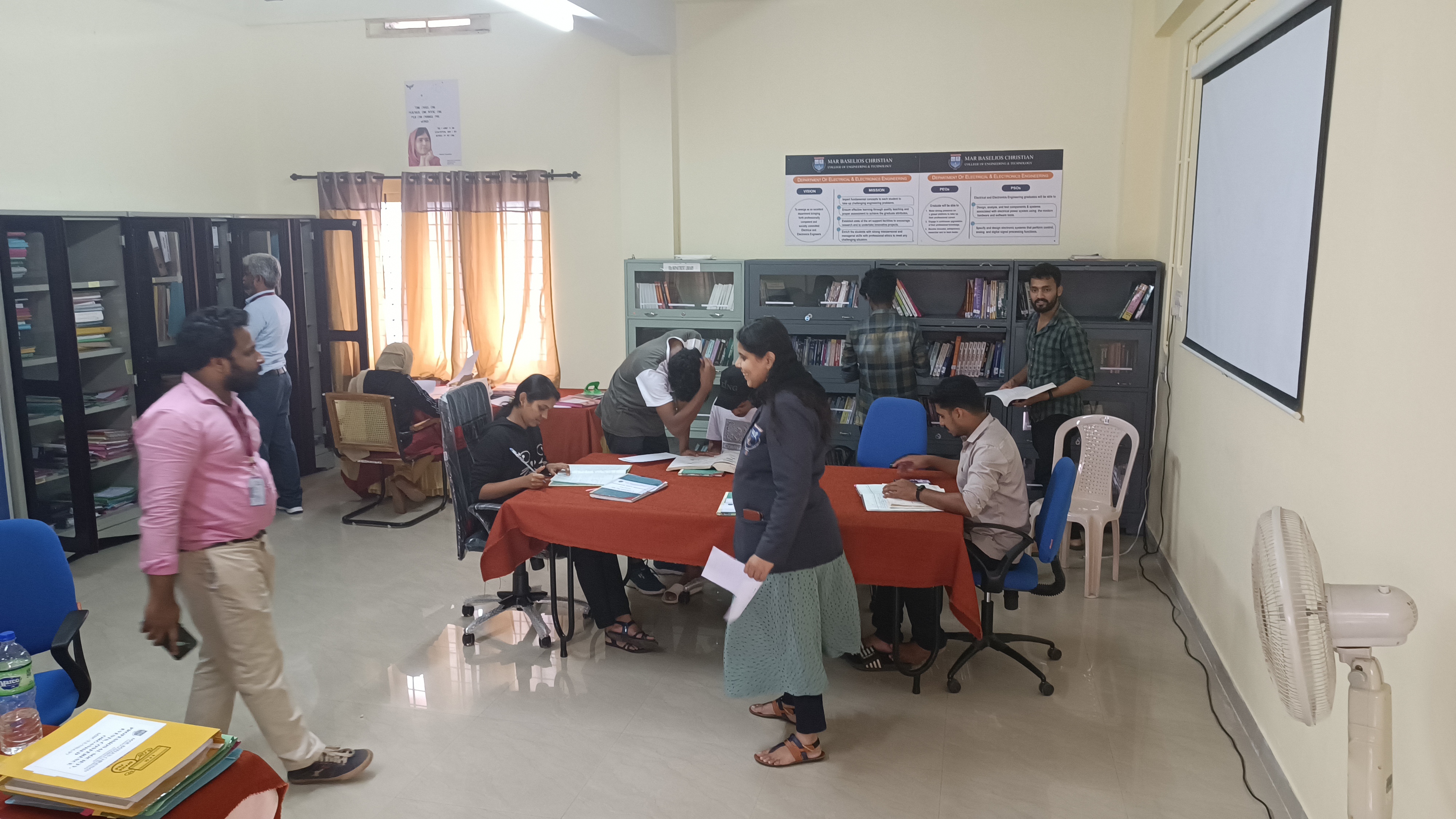
The department library offers a wide range of learning resources and it serves as an add-on to the central library of MBCET. The library has been providing specialized collection of books, journals and magazines. The library has a collection of books around 360, National journal - HYDEL, 3 International magazines – IEEE Spectrum, Industrial Application Society, Power and Energy Society, Power Electronics. The library reading space can accommodate more than 30 students at a time The staff and students can access books during the working hours. We are proud to say that the Alumni of EEE as a credible contribution to the development of Departmental Library
LAB FACILITIES
The department provides the students with the best and the most modern laboratory facilities. Alongside the laboratories required as of the syllabus we provide them with the facilities to nurture their innovative research purposes. The laboratory wing of the department consists of the below notified facilities :
- ELECTRICAL WORKSHOP
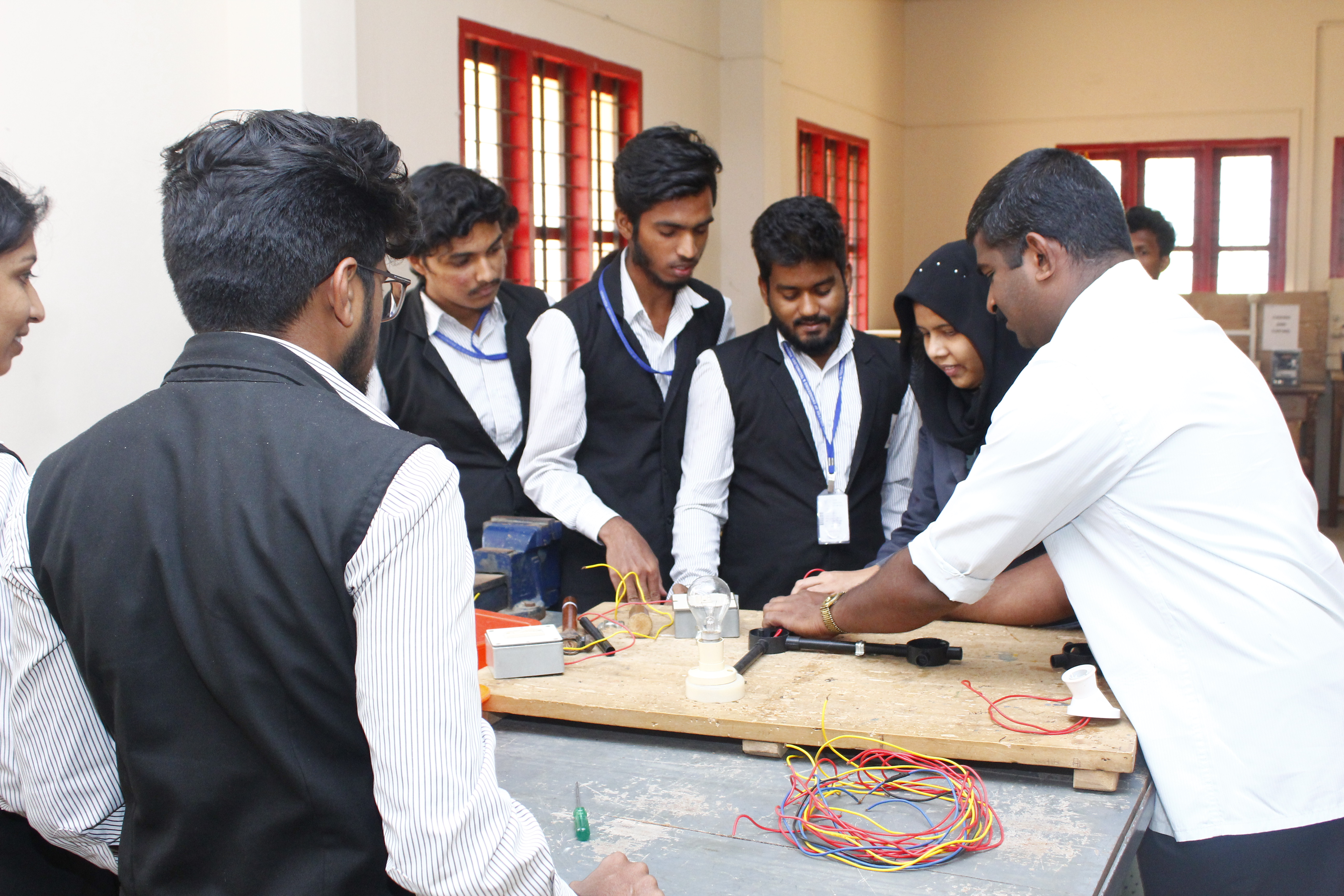
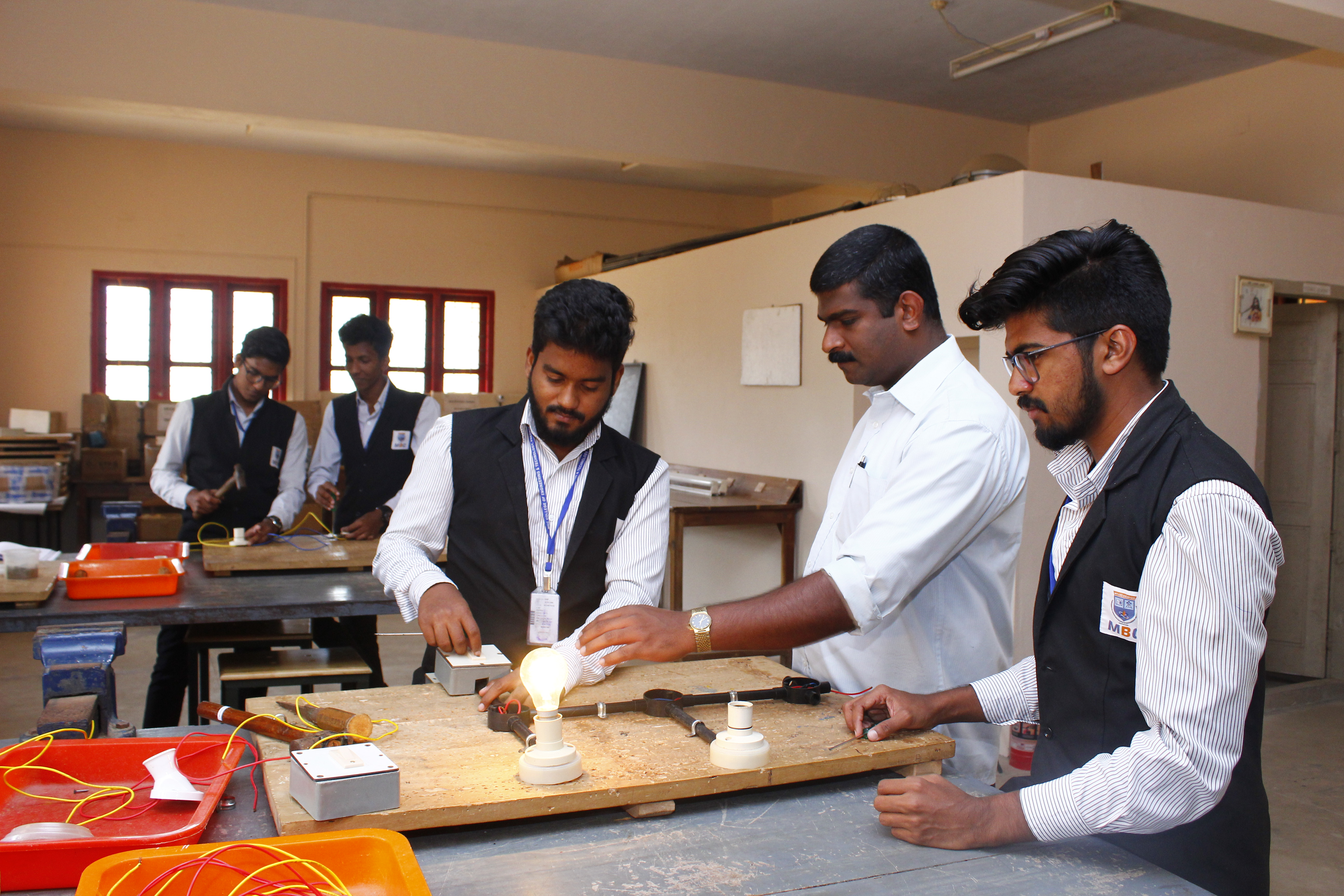
Workshop practice is the backbone of the real industrial environment which helps to develop and enhance relevant technical hand skills required by the technician working in the various engineering industries and workshops. This Lab is intended to impart basic know-how of various hand tools, electrical and electronics equipments, their use in different sections of Wiring Techniques, Soldering Techniques, Basic Network Communication and Designing of Electrical. Irrespective of branch, the use of workshop practices in day to day industrial as well domestic life helps to dissolve the problems.
- CIRCUITS AND MEASUREMENTS LAB
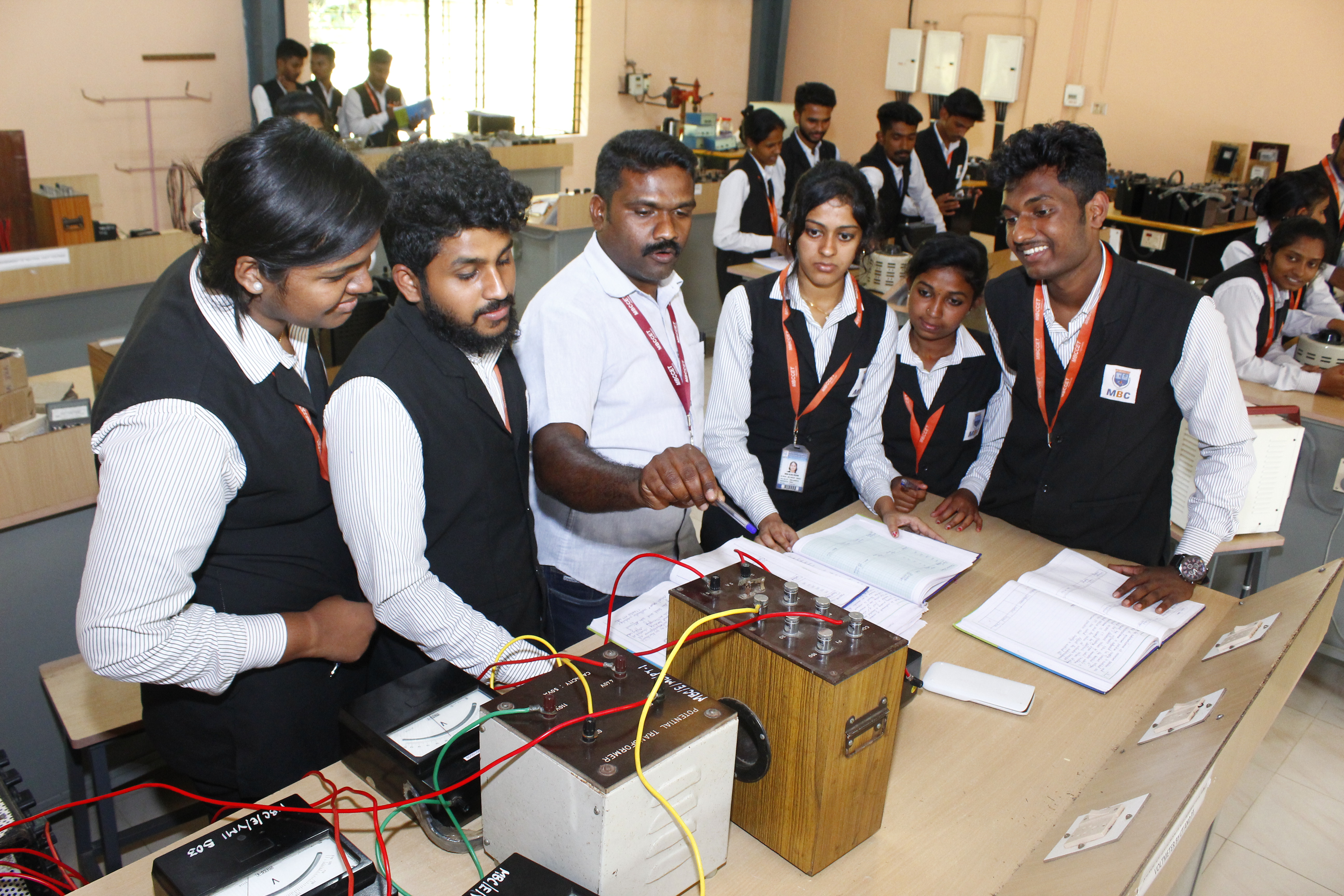
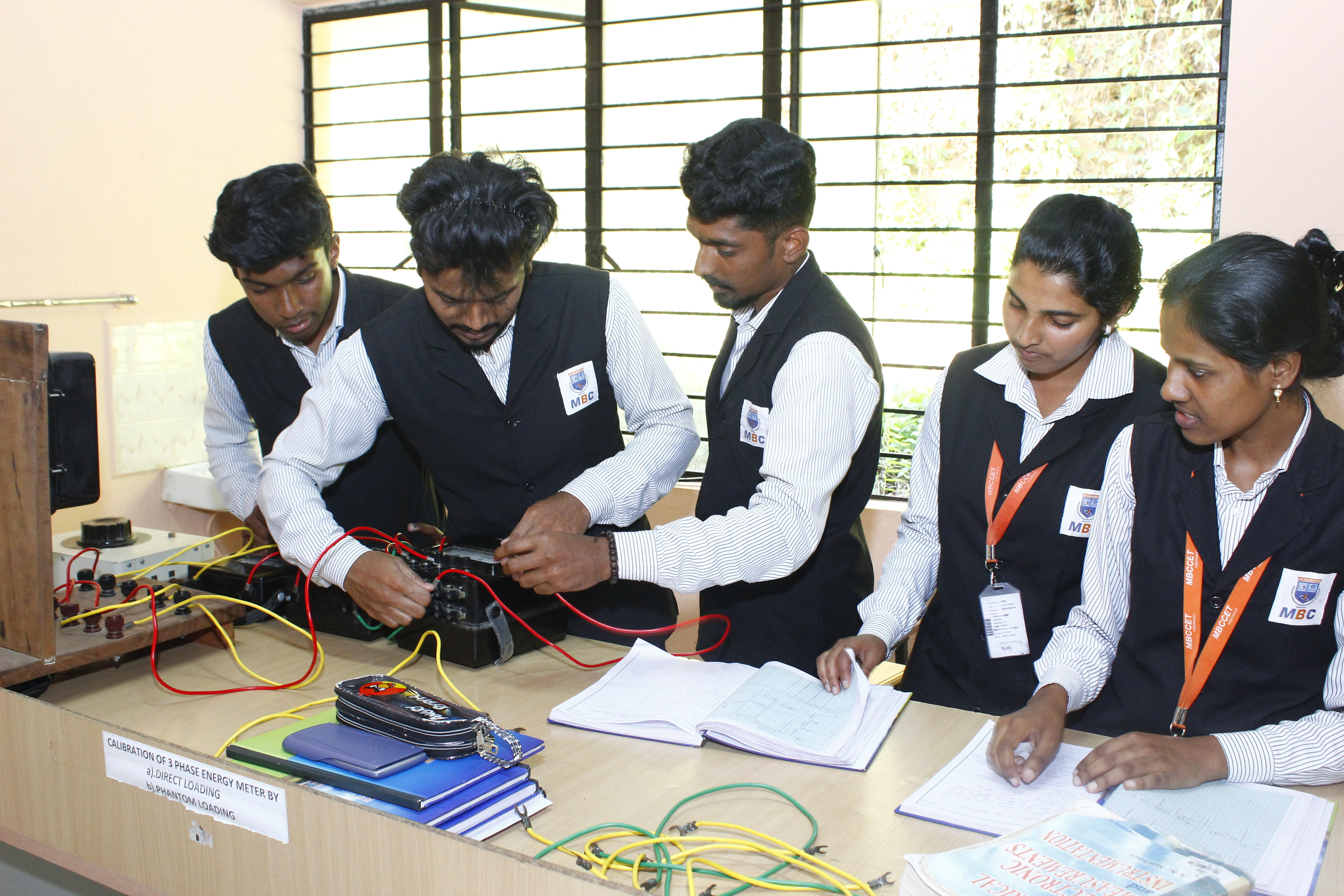
The objective of this lab is to teach students
o To know the procedures for measuring resistance, inductance and capacitance of different ranges
o To perform experiments to measure three phase power, frequency, core losses.
o To design experiments for calibration of energy meter, wattmeter, extension of meter ranges etc.
- ELECTRICAL MACHINES LAB
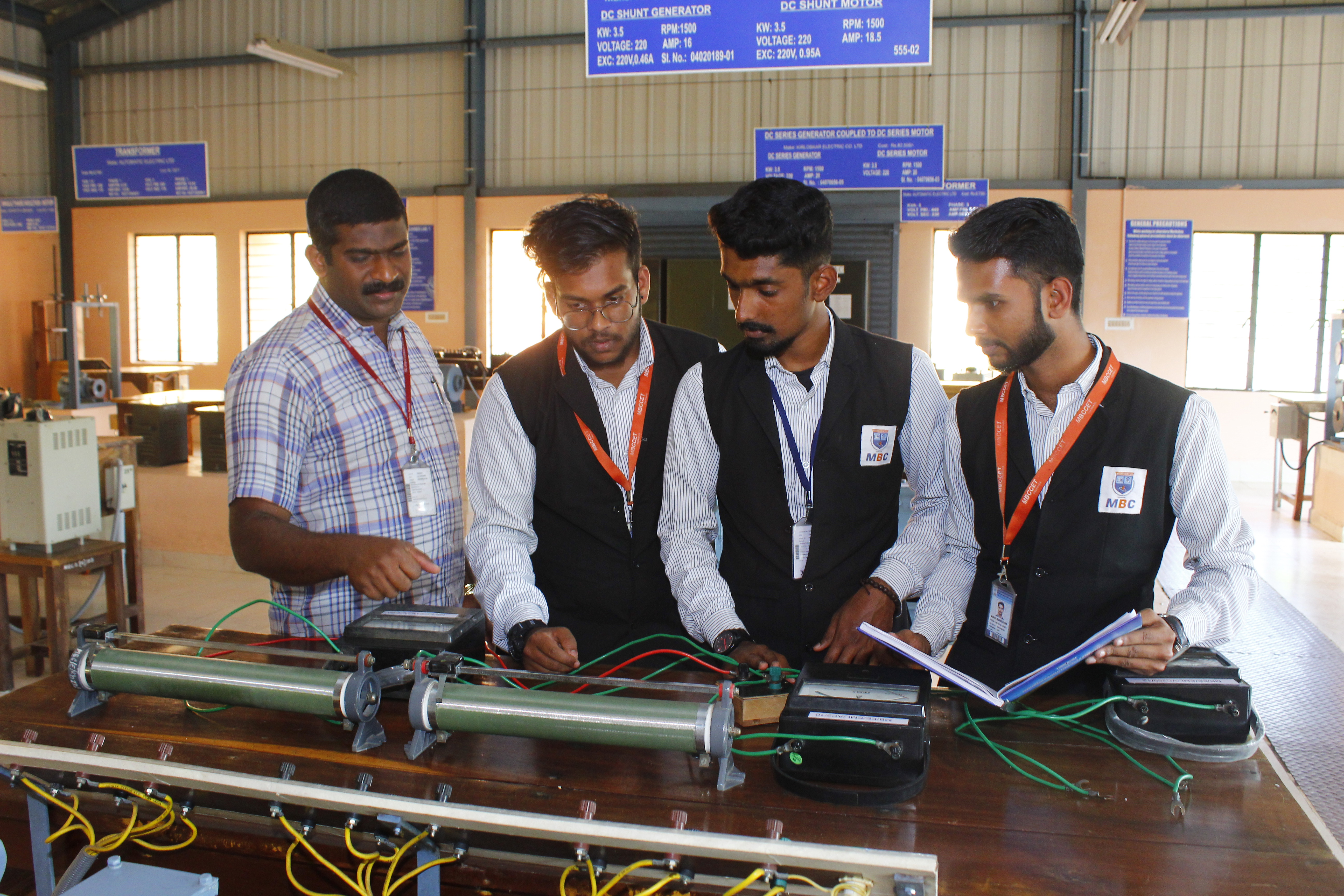
 The objective of the Electric Machine Laboratory is to impart knowledge about characteristics and behaviour of the DC and AC Machines, operation of D.C,machines, transformers, synchronous and asynchronous machines and give them an experimental skill, familiarize with the constructional details of different types,working principle and their performance.This lab consists of DC machines, induction motors, induction generator, alternators, synchronous motors etc., all mountedin an industrial type of assembly to give the students an industrial feel.
The objective of the Electric Machine Laboratory is to impart knowledge about characteristics and behaviour of the DC and AC Machines, operation of D.C,machines, transformers, synchronous and asynchronous machines and give them an experimental skill, familiarize with the constructional details of different types,working principle and their performance.This lab consists of DC machines, induction motors, induction generator, alternators, synchronous motors etc., all mountedin an industrial type of assembly to give the students an industrial feel.
-
CIRCUITS AND
MEASUREMENT LAB 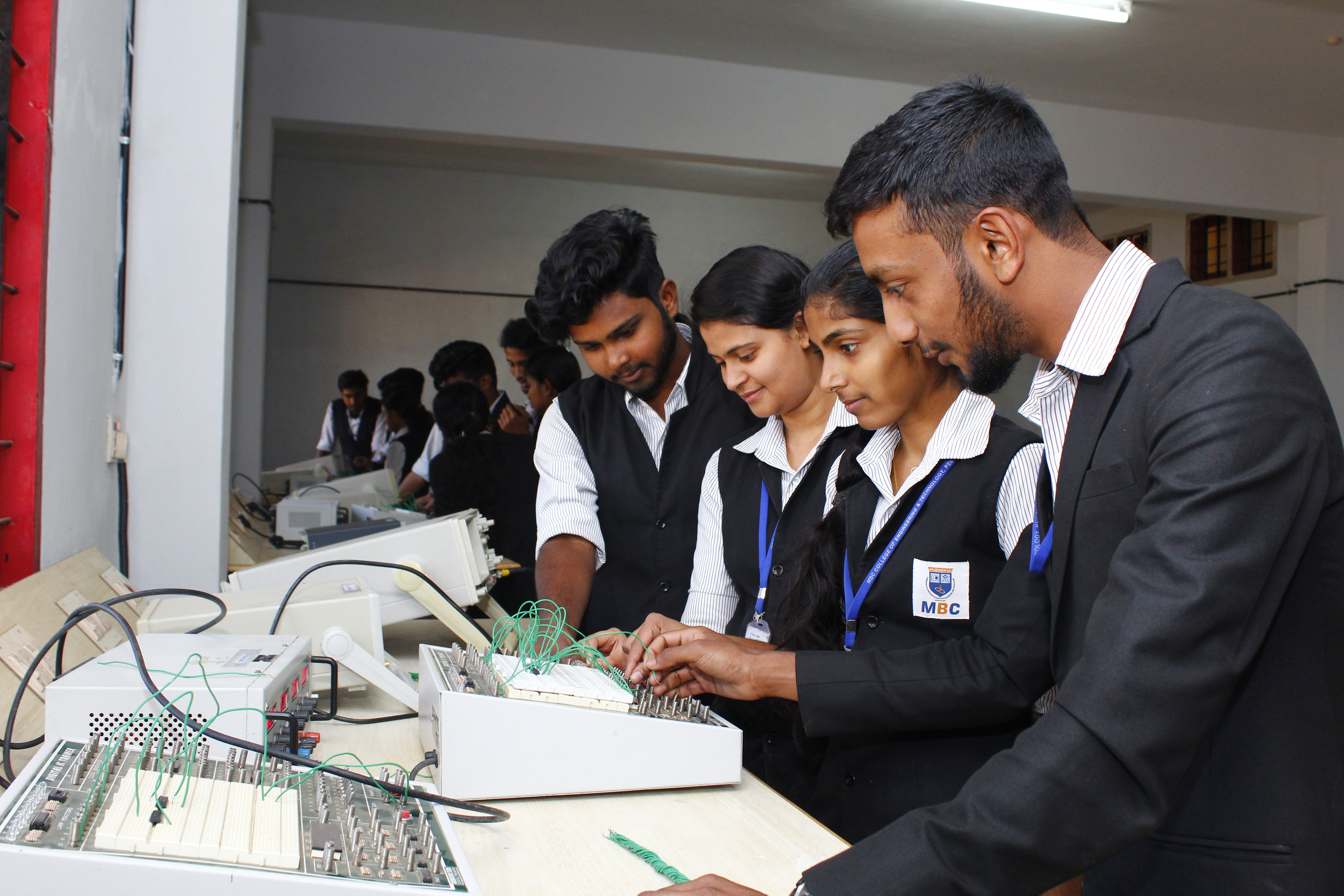
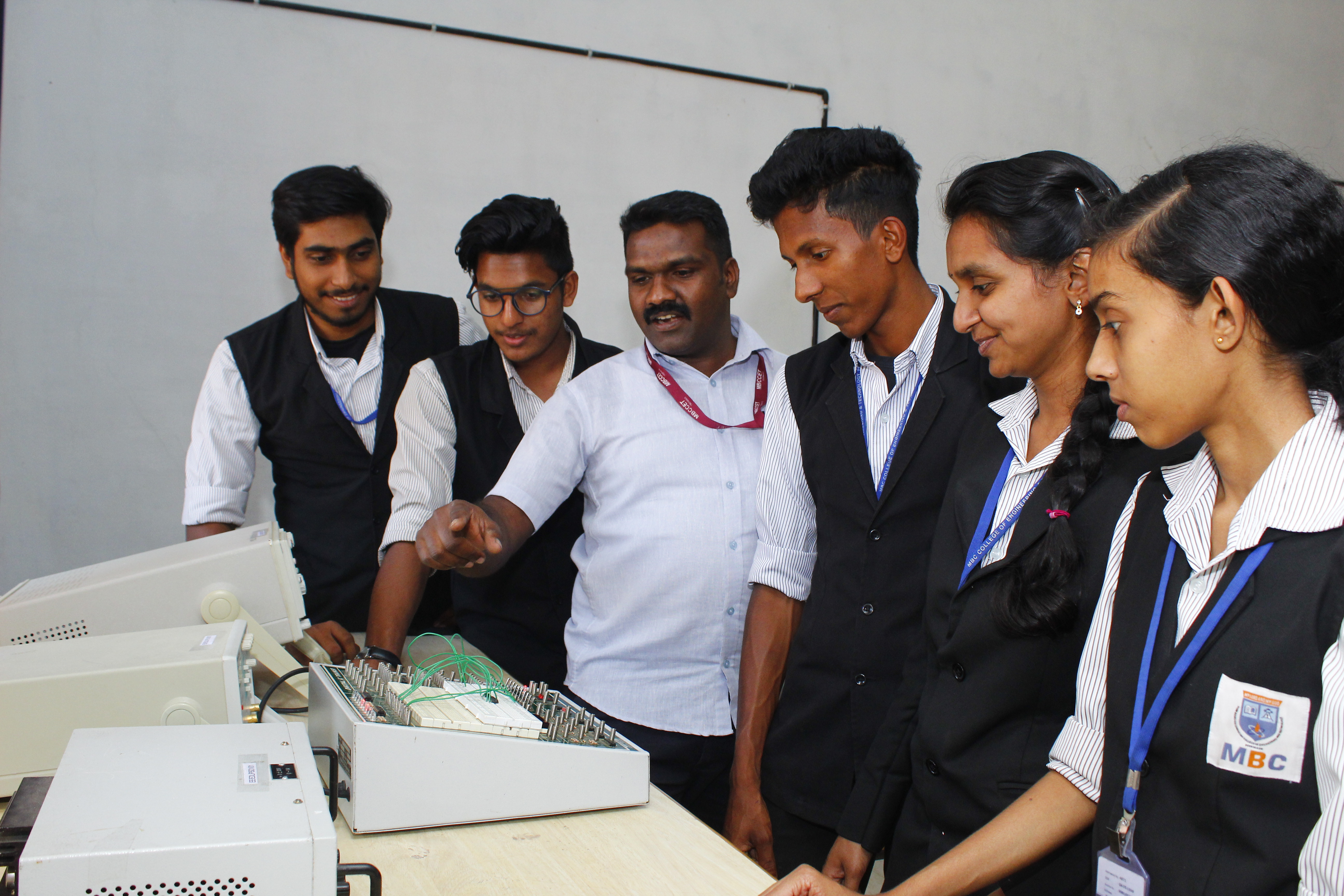
This lab is used to train Engineers and Technicians on the fundamentals as well as advanced electronic circuits and applications. Students will learn how to develop and employ circuit models for elementary electronic components, e.g., resistors, sources, inductors, capacitors, diodes and transistors, become adept at using various methods in circuits, gain an intuitive understanding of the role of power flow and energy storage in electronic circuits.
- ELECTRONICS CIRCUIT LAB
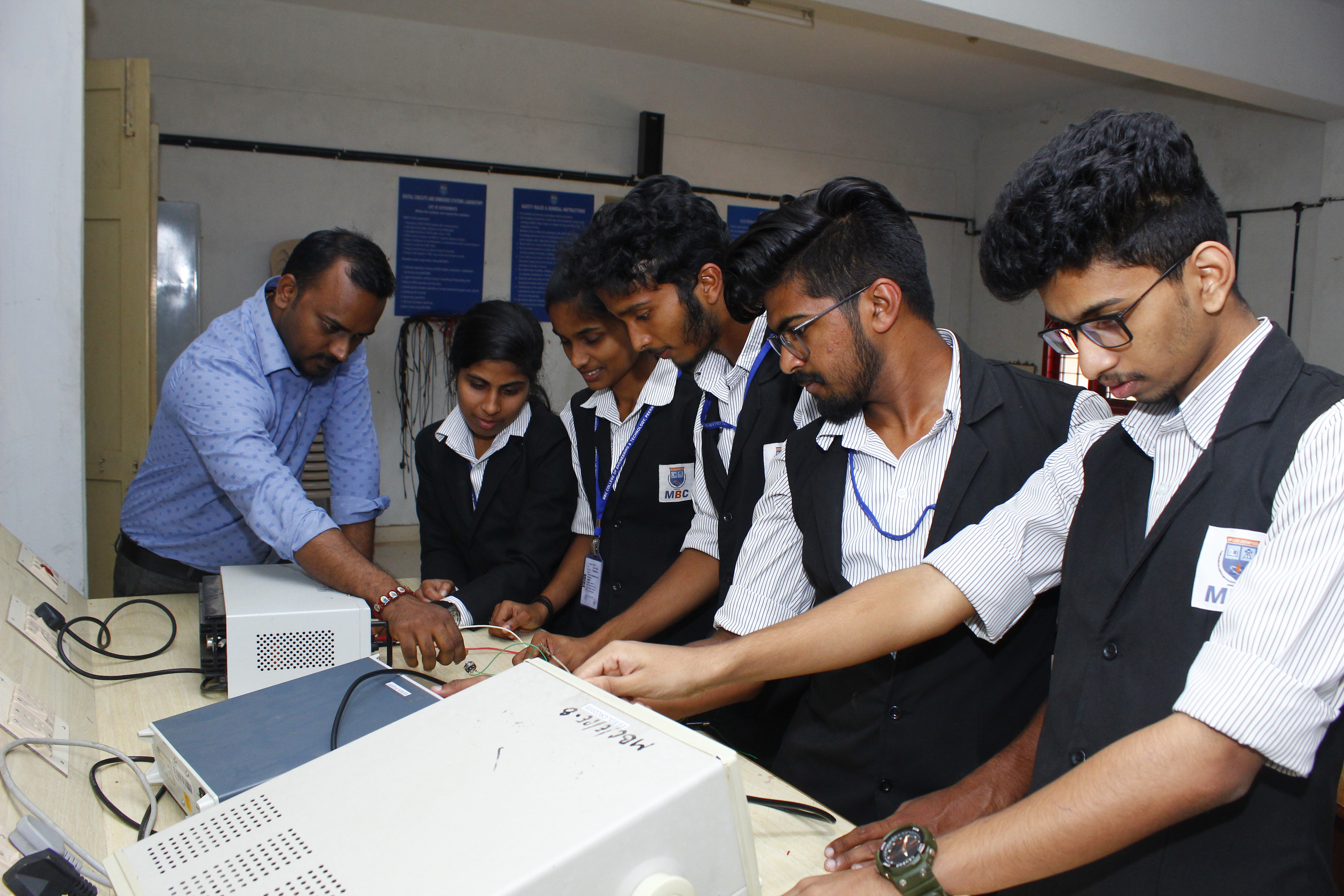
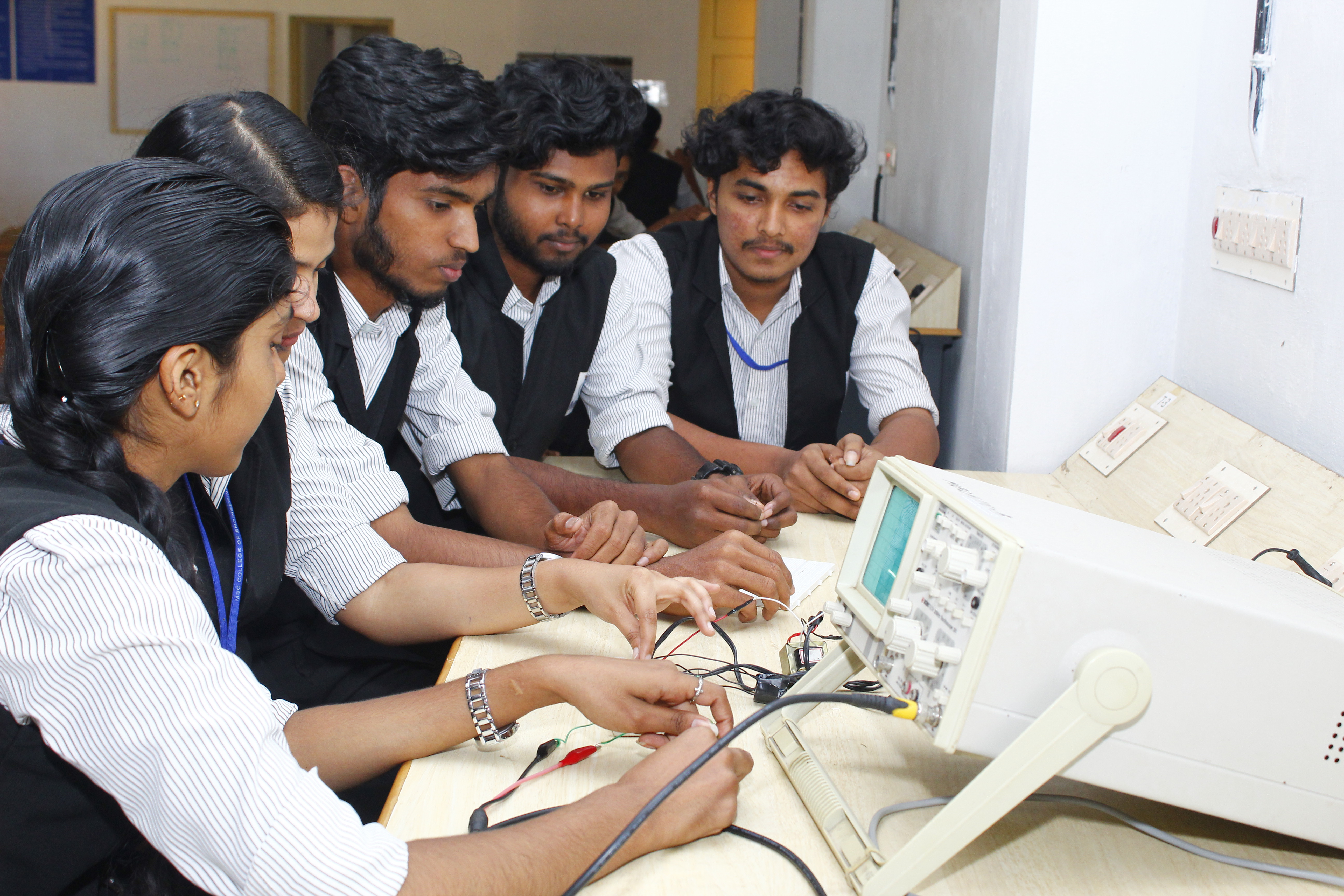
Experiments have been designed to familiarize students with the Digital Logic Design, through the implementation of different types of combinational and sequential such as adders, subtractor, code converters, comparators, multiplexers, flip-flops, counters, shift registers and sequence detectors. There is a trained and skilled lab technician that takes care of the lab equipment. He also guides students about handling the lab equipment and the precautionary measures required for the students while working in the lab.
This lab is used to conduct a wide range of experiments such as realisation of SOP & POS functions after K map reduction, Half adder & Full adder realization using NAND gates,4-bit adder/subtract or & BCD adder using IC 7483,BCD to decimal decoder and BCD to 7-segment decoder & display, Study of multiplexer IC and Realization of combinational circuits using multiplexers, Study of counter ICs (7490, 7493), Design of synchronous up, down & modulo N counters, Study of shift register IC 7495, ring counter and Johnsons counters etc. Also it in cooperates the experiments such as Data transfer instructions using different addressing modes and block transfer, Arithmetic operations in binary and BCD-addition, subtraction, multiplication and division, Logical instructions- sorting of arrays in ascending and descending order, Binary to BCD conversion and vice versa, Interfacing D/A converter- generation of simple waveforms-triangular wave, ramp etc, Interfacing A/D converter and Square wave generation.
The features and facilities available in this lab help the students to do their projects and enhance their knowledge on the latest trends and technologies. The objective of the lab is
• To do research and develop the embedded systems platform for future applications.
• To promote innovative projects and patent them for commercialisation.
• To support knowledge transfer in embedded system design to local manufacturers, as well as to education institutes.
• To gain experience in programming languages that are used in current industrial practice
- POWER ELECTRONICS LAB
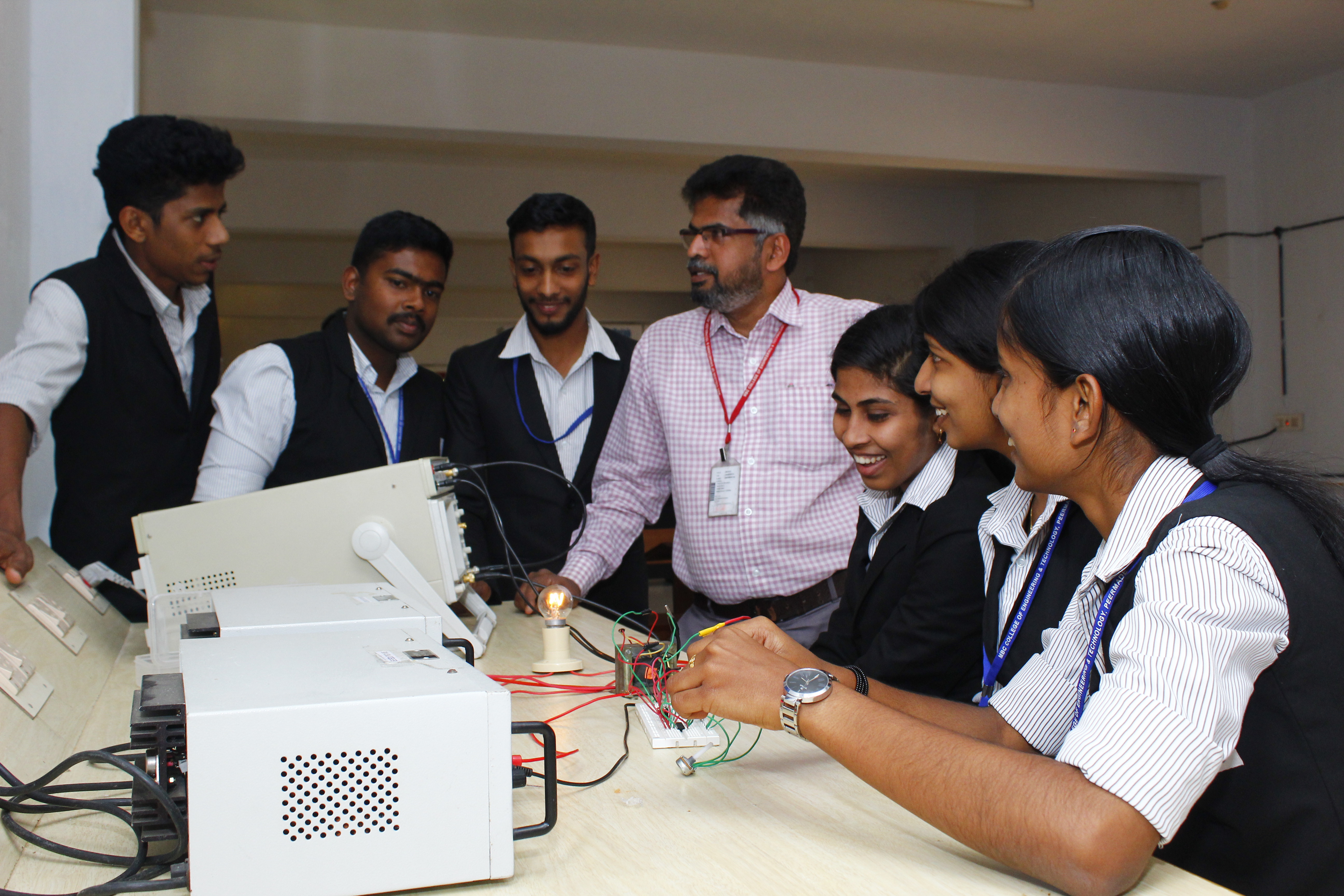

The lab facilitates the teaching and research needs in the multi-disciplinary technical area of power electronics. The laboratory is equipped with Single Phase and
Three Phase AC to DC Converters, Choppers, Single Phase AC Voltage Controllers, Single Phase and Three Phase Inverters. Students can utilize this Laboratory
to carry out their project work. Figure 6.3c gives the picture of power electronics lab.
- POWER SYSTEMS LAB


The Power Systems Lab is giving courses in power systems analysis, design and control in the undergraduate program of electrical engineering.Introduce the basic concepts of power systems as well as the tools students need to apply these skills to real world situations with power system analysis and design.The Power Systems Lab is equipped with power frequency AC high voltage test set (30 kV AC) , Microprocessor based over current and voltage relay test set, transformer oil testing set, Cable testing equipment, Megger ,a full-fledged power system simulation software ‘ Mipower ‘ and MATLAB. It is used for teaching basic and advanced concepts in power system generation, transmission and distribution, and training in power quality analysis.
- SYSTEM AND CONTROL LAB
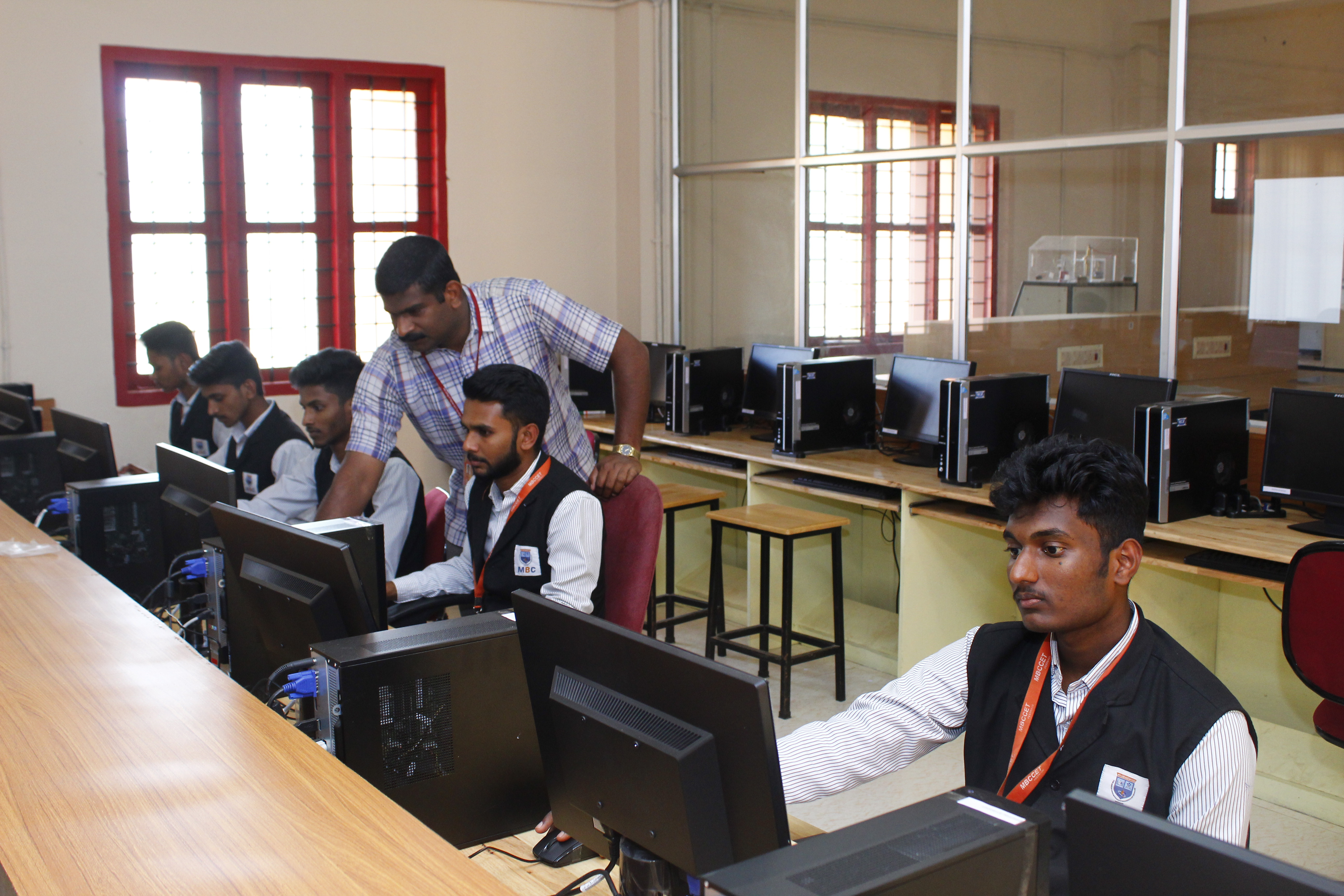
Control laboratory provides a “hands-on” environment that is crucial for developing student’s understanding of theoretical concepts. Control laboratory is housed with different instruments like temperature measurement, level detection, pressure measurement, flow measurement etc On different panels or rigs these are arranged in different control configurations to achieve specific control objectives. Each student is exposed to the various industrial sensors used to measure the assorted process parameters. Modern process control techniques like DCS, PLC etc are made available to the student here.
The laboratory also uses the Control System Tool Box available in MATLAB and LabVIEW software to simulate the control system problems. Simulink available in MATLAB is utilized to simulate the real time systems. LabVIEW is a graphical programming platform that helps engineers scale from design to test and from small to large systems. Prospective students who wish to pursue graduate research in power electronics, robotics and automation, embedded systems and its applications in control, sensor design, and biomedical instrumentation may enroll in the Instrumentation & Controls choice of the graduate program.
Maximum Number of Students can accommodated : 30
Lab Equipment & Facilities:
- Computers (1 per student) - HCL Pentium 3 Computer with 17in CRT Display 450MHz, 4GB memory, 250GB Hard drive, 250MB Zip, 3.5" floppy, CDROM
- 1 National Instruments PCI-GPIB Card (IEEE-488.2 Interface)
- Networked to SOELABS Windows 2000 domain via 100baseT connection.
- Technical Softwares
- MATLAB 2012a ,LabVIEW ,PSpice, DCS, PLC
- MODEL ROOM
- PROJECT LAB